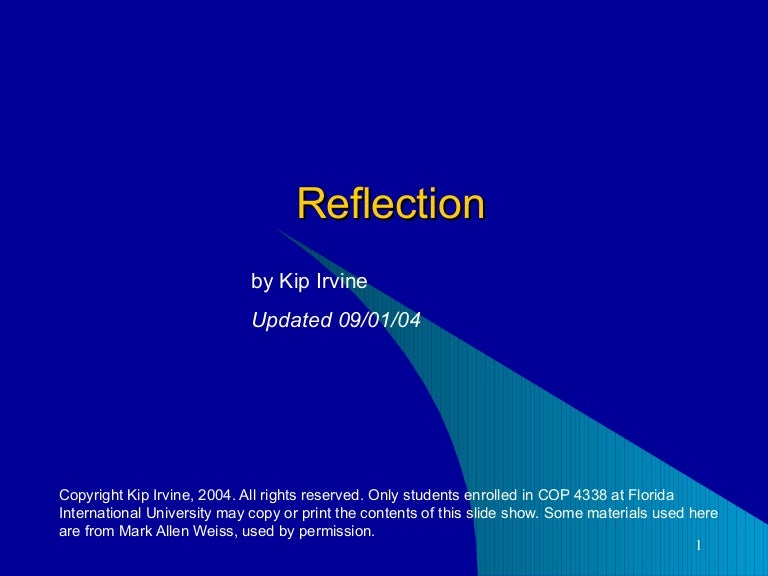

For example, if you have a security check that only allows certain classes to be loaded, a malicious user could use reflection to load an unauthorized class. One common security issue when using Java Reflection API is that it can be used to bypass security checks. What are some common security issues when using Java Reflection API? This will give you an array of StackTraceElement objects, which you can then use to generate a stack trace. The best way to generate accurate stack traces using Java Reflection is to use the Throwable.getStackTrace() method. What is the best way to generate accurate stack traces using Java Reflection? If performance is a primary concern, then it is generally best to avoid using reflection.

Ultimately, it depends on how reflection is used and what the specific goals are. While reflection can be used to improve performance in some cases, it can also lead to poorer performance in others. There is no simple answer to this question. Should we avoid using Java Reflection for better performance? Some of these languages include C#, Python, and Ruby. Yes, there are a few other languages that have reflection capabilities.

Are there any other languages that support reflection like Java does? This can be useful for a variety of purposes, such as creating mock objects for testing or providing security-related functionality. This allows you to create objects that act as proxies for other objects, intercepting method calls and providing alternative behavior. Yes, the Java Reflection API supports dynamic proxy classes. Does the Java Reflection API support dynamic proxy classes? If the length of this array is 0, then the method has no parameters. This method will return an array of Class objects, one for each parameter type. This can be done by using the getParameterTypes() method of the Method class. Yes, it is possible to check whether a method has parameters using Java Reflection API. Is it possible to check whether a method has parameters using Java Reflection API? If yes, then how? Once you have a reference to the Method object, you can invoke it by calling the invoke() method on it and passing in the object you want to invoke the method on and any required parameters. You can do this by using the Class object’s getMethod() method, passing in the name of the method and the types of the parameters it takes. To do this, you first need to get a reference to the Method object that you want to invoke. This means that you can use reflection to dynamically invoke methods on objects, even if you don’t know the name of the method ahead of time. The Java Reflection API allows Java developers to inspect and manipulate classes and objects at runtime. How can you use Java Reflection to dynamically invoke methods at runtime? You can use the isInstance() method of the class to find out if an object is an instance of a particular class or interface. How do you find out if an object implements an interface or extends a particular class using the Reflection API? This includes classes and interfaces, as well as primitive types and void. A Type object represents a type in the Java programming language. What’s the difference between a Class and a Type object?Ī Class object represents a class or interface in the Java programming language. When you use the Java Reflection API, you are essentially using the class loader to load classes into memory so that you can inspect them. Can you explain what a class loader is in context with Java Reflection API?Ī class loader is a Java object that is responsible for loading classes into the Java Virtual Machine. – To provide a means by which Java programs can be dynamically extended. – To allow Java programs to examine and manipulate the properties of arbitrary Java objects at runtime. The Java Reflection API is mainly used for two purposes: What are the main uses of Java Reflection API? This information can be used to inspect and modify the behavior of a class. Reflection is the process of dynamically accessing information about a class at runtime. Here are 20 commonly asked Java Reflection API interview questions and answers to prepare you for your interview: 1. Java Reflection API Interview Questions and Answers In this article, we’ll discuss some common Reflection API interview questions and how you should answer them. If you’re interviewing for a Java development position, it’s likely that the interviewer will ask you questions about the Reflection API to gauge your level of knowledge and expertise.

#Java reflection code
This can be useful for a variety of tasks, such as creating dynamic proxies, generating code at runtime, and more. The Java Reflection API is a powerful tool that allows Java developers to inspect and manipulate classes and objects at runtime.


 0 kommentar(er)
0 kommentar(er)
